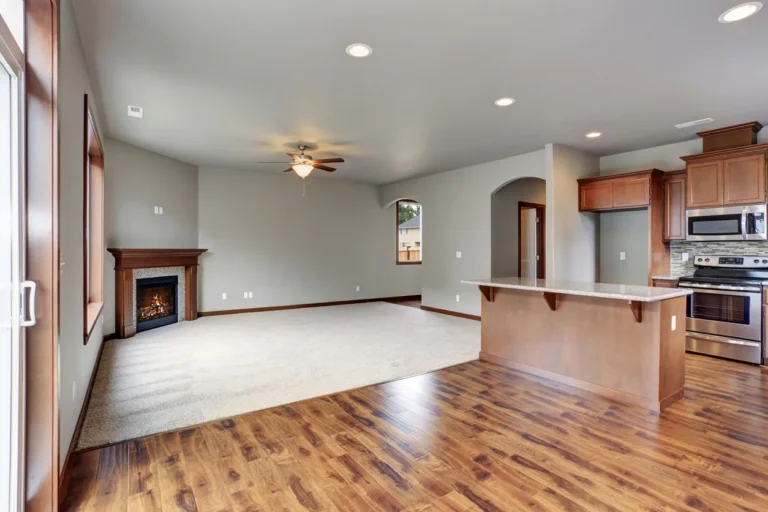Introduction
California’s landlord-tenant laws are among the most extensive and tenant-protective in the United States. These laws balance the rights of tenants and landlords, creating a framework where both parties can coexist fairly. For a rental relationship to work smoothly, both landlords and tenants must understand their rights and obligations.
Landlords must follow strict guidelines on what a landlord cannot do in California. These restrictions protect tenants from unfair practices, unsafe conditions, and harassment. Tenants feel secure knowing the law protects them, while landlords avoid costly legal mistakes by staying compliant.
This guide explains in detail what landlords cannot do in California, provides examples of violations, and shows what tenants can do when landlords cross the line.
For more insights into California rental laws, you may also read our guide on how long landlords have to return a security deposit in California or whether a 30-day notice is required on a month-to-month lease.
Key Legal Boundaries for Landlords
California landlord-tenant laws aim to protect tenants’ rights while balancing property owners’ interests. These laws prevent landlords from:
- Entering a tenant’s property without notice
- Retaliating against tenants
- Discriminating against tenants
- Ignoring habitability standards
- Charging excessive security deposits
- Changing locks or shutting off utilities
- Raising rent beyond legal limits
Let’s break down each one to understand why they matter and what tenants can do when landlords violate them.
Landlords Cannot Enter Without Proper Notice
Tenants have a right to privacy. California Civil Code Section 1954 requires landlords to give at least 24 hours’ written notice before entering a tenant’s unit, except in emergencies.
When landlords can enter:
- Emergencies: Fires, water leaks, or gas leaks that threaten safety.
- Repairs and maintenance: Landlords must give notice before sending contractors.
- Inspections: They must schedule inspections at reasonable hours with prior notice.
Tenants can file complaints with the California Department of Consumer Affairs if landlords repeatedly enter without following these rules.
Landlords Cannot Retaliate Against Tenants
California Civil Code Section 1942.5 prohibits retaliation. Landlords cannot punish tenants for asserting legal rights, such as requesting repairs or filing complaints.
Examples of retaliation include:
- Raising rent right after a tenant files a complaint
- Attempting eviction without valid cause
- Cutting off essential services like water or heating
- Harassing tenants with threats or unannounced visits
Tenants can sue landlords who retaliate and recover damages for any losses they suffered.
Landlords Cannot Discriminate Against Tenants
The Fair Employment and Housing Act (FEHA) and the federal Fair Housing Act (FHA) forbid discrimination in housing.
Protected categories include race, ethnicity, disability, gender, sexual orientation, marital status, and familial status. For example:
- A landlord cannot deny a tenant with disabilities the right to have a service animal.
- A landlord cannot refuse to rent to families with children.
- A landlord cannot treat LGBTQ+ tenants differently.
Tenants can report discrimination to the California Department of Fair Employment and Housing (DFEH) or HUD. Landlords who discriminate face fines and compensation claims from tenants.
Landlords Cannot Ignore Habitability Standards
California law requires landlords to provide safe and livable housing. Civil Code Section 1941.1 outlines the “implied warranty of habitability.” Landlords must:
- Fix leaks, broken windows, and unsafe structures
- Maintain plumbing, sewage, and sanitation
- Provide working heating systems and safe utilities
If landlords ignore repair requests, tenants may withhold rent, hire contractors, or take legal action. In serious cases, tenants may legally break the lease.
Landlords Cannot Charge Excessive Security Deposits
California caps security deposits at:
- Two months’ rent for unfurnished units
- Three months’ rent for furnished units
Landlords must return deposits within 21 days and provide an itemized statement for deductions. If they don’t, tenants can take them to small claims court and often win reimbursement plus damages.
Landlords Cannot Change Locks or Shut Off Utilities
Self-help evictions are illegal in California. Landlords cannot force tenants out by:
- Changing the locks
- Cutting off water, gas, or electricity
- Blocking tenants from accessing the property
To remove a tenant, landlords must follow the legal eviction process, which includes serving notice and obtaining a court order.
Landlords Cannot Raise Rent Above Legal Limits
Under AB 1482, California’s statewide rent control law, most residential properties built before 2005 face rent caps. Landlords may only raise rent by:
- A maximum of 5% plus inflation, or
- $100 per month, whichever is greater
Cities with rent control ordinances, such as Los Angeles, San Francisco, and Berkeley, enforce stricter limits. Tenants should challenge unlawful rent increases through local housing authorities or in court.
Lesser-Known Tenant Protections
Many renters don’t realize they have additional rights, including:
- The right to form tenant unions without landlord retaliation
- Protection from eviction without just cause in rent-controlled areas
- The ability to file complaints with local housing authorities for uninhabitable conditions
Frequently Asked Questions
Can a landlord inspect a property without the tenant present?
No. Landlords must give written notice and schedule inspections at reasonable hours unless it’s an emergency.
What can a tenant do if a landlord refuses repairs?
Tenants may withhold rent, hire a contractor, or take legal action if landlords don’t fix issues.
Can a landlord increase rent after a tenant files a complaint?
No. Increasing rent in retaliation is illegal.
Conclusion
California’s landlord-tenant laws clearly define what a landlord cannot do in California. These rules protect tenants from harassment, unsafe housing, and unfair treatment. Landlords who respect these boundaries avoid legal trouble and maintain stronger tenant relationships.
If you face uncertainty about a rental issue, consult a property management expert or legal professional. For more details, check out our guides on breaking a lease in California and security deposit laws.
Turn Your Passion for Property Management Into Profit
Join our franchising program and learn how to become a successful property manager. We provide training and support to help you grow your business. Learn More About Franchising Opportunities and take the first step today.
Let us handle the day-to-day operations while you enjoy hassle-free ownership. From tenant relations to maintenance, we’ve got it covered. Contact Us today to learn more about our property management services!
💡 Image alt text suggestion for Yoast:
- “what a landlord cannot do in California – landlord entering without notice”
- “what a landlord cannot do in California – tenant rights retaliation”
- “what a landlord cannot do in California – housing discrimination laws”
- “what a landlord cannot do in California – rent increase limits”





